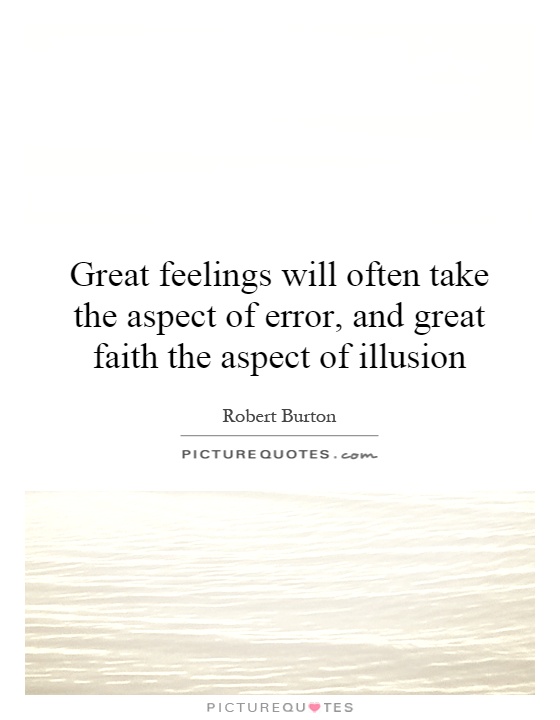Great feelings will often take the aspect of error, and great faith the aspect of illusion

Great feelings will often take the aspect of error, and great faith the aspect of illusion
Robert Burton, a 17th-century English scholar and writer, is best known for his work "The Anatomy of Melancholy." In this seminal work, Burton delves into the complexities of human emotions, beliefs, and behaviors. One of the key themes that Burton explores is the idea that great feelings can often be mistaken for error, and great faith can be perceived as illusion.Burton believed that human emotions and beliefs are inherently complex and often difficult to understand. He argued that what may seem like a great feeling or strong faith to one person may actually be based on false assumptions or misconceptions. In other words, our perceptions of reality can be clouded by our emotions and beliefs, leading us to make errors in judgment.
For example, someone who is deeply in love may believe that their feelings are pure and true, but in reality, they may be idealizing the object of their affection and ignoring red flags in the relationship. Similarly, someone who has unwavering faith in a particular belief or ideology may be blinded to evidence that contradicts their beliefs, leading them to hold onto illusions rather than facing reality.
Burton's exploration of the relationship between feelings, faith, and error is particularly relevant in today's world, where misinformation and fake news abound. In an age of social media and echo chambers, it is easy for people to become entrenched in their beliefs and dismiss any evidence that challenges their worldview. This can lead to a dangerous cycle of confirmation bias and cognitive dissonance, where people cling to illusions rather than confronting uncomfortable truths.












 Friendship Quotes
Friendship Quotes Love Quotes
Love Quotes Life Quotes
Life Quotes Funny Quotes
Funny Quotes Motivational Quotes
Motivational Quotes Inspirational Quotes
Inspirational Quotes